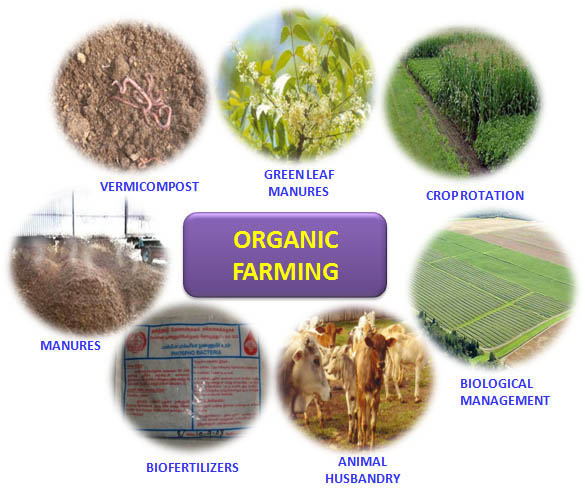
Cultivating Nature: The Art of Organic Farming
Organic farming is more than a method; it’s a philosophy that embraces sustainability, biodiversity, and environmental stewardship. In this exploration, we’ll delve into the world of organic farming, understanding its principles, benefits, and the transformative impact it holds for both agriculture and the planet.
The Essence of Organic Farming
At its essence, organic farming is a holistic approach to agriculture that prioritizes natural processes and avoids synthetic inputs. This method emphasizes soil health, biodiversity, and ecological balance, seeking to cultivate crops in harmony with nature rather than relying on chemical interventions. The goal is not just to grow food but to cultivate a sustainable and regenerative system.
Building Healthy Soils
A cornerstone of organic farming is the focus on building and maintaining healthy soils. Through practices like composting, cover cropping, and crop rotation, organic farmers nurture the soil’s structure and fertility. Healthy soils contribute to better water retention, reduced erosion, and increased microbial activity, fostering a resilient and thriving ecosystem.
Avoidance of Synthetic Chemicals
Unlike conventional farming, which often relies on synthetic pesticides and fertilizers, organic farming prohibits the use of these chemicals. Instead, organic farmers employ natural alternatives like beneficial insects, companion planting, and organic amendments to manage pests and enhance soil fertility. This approach minimizes environmental pollution and promotes a healthier food system.
Promoting Biodiversity
Organic farming champions biodiversity as a key element of a resilient agricultural ecosystem. By avoiding monoculture and encouraging the presence of diverse plant and animal species, organic farms create a balanced environment that can better withstand pests, diseases, and environmental changes. This biodiversity extends beyond the farm, positively impacting surrounding ecosystems.
Supporting Animal Welfare
In addition to plant cultivation, organic farming often includes practices that prioritize animal welfare. Organic livestock is raised with access to the outdoors, ample space to move, and a diet free from synthetic additives. This humane approach not only aligns with ethical considerations but also contributes to the overall health of the farm system.
Healthier Food Choices
For consumers, one of the primary benefits of organic farming lies in the quality of the produce. Organic fruits, vegetables, and grains are cultivated without synthetic pesticides and fertilizers, leading to a reduction in pesticide residues on food. Studies suggest that organic produce may also have higher nutrient content, providing consumers with healthier food choices.
Environmental Stewardship
Organic farming is rooted in environmental stewardship. By prioritizing sustainable practices, organic farmers contribute to soil conservation, water quality improvement, and reduced carbon emissions. This commitment to the environment extends to minimizing energy use, promoting renewable energy sources, and overall fostering a more sustainable agriculture sector.
Challenges and Opportunities
While organic farming has numerous benefits, it also faces challenges such as higher production costs and potential yield variations. However, as consumer demand for organic products grows, there are opportunities for innovation and increased support for organic farmers. Government policies and incentives can play a crucial role in promoting a transition towards more sustainable farming practices.
Educational Resources for Organic Farming
For those interested in exploring organic farming further, Centrum Zdravi offers educational resources and insights. Whether you’re a novice looking to understand organic farming principles or an experienced farmer seeking advanced techniques, this platform provides valuable guidance on the journey towards sustainable agriculture.
Visit Organic farming for Sustainable Agriculture Insights
For comprehensive insights into organic farming and sustainable agriculture, visit Centrum Zdravi. The platform serves as a valuable resource for understanding organic principles, exploring innovative practices, and connecting with a community dedicated to cultivating a healthier, more sustainable future.
Cultivating a Sustainable Future
In conclusion, organic farming is not just a method of growing food; it’s a philosophy that recognizes the interconnectedness of agriculture, the environment, and human health. By embracing organic principles, farmers contribute to a more sustainable, regenerative food system that benefits the planet and future generations. Explore the art of organic farming and join the movement towards a more sustainable and harmonious agricultural future.
